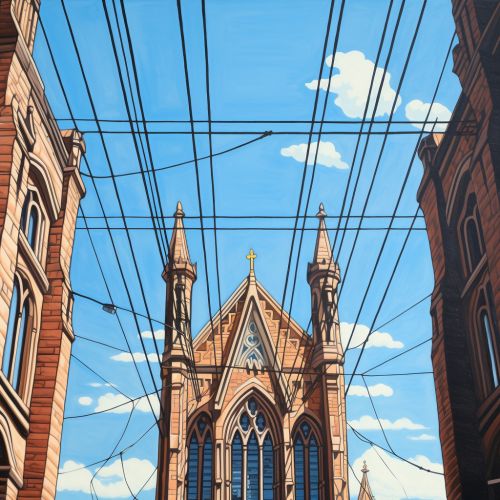History of Brooklyn
Pre-colonial era
Before the arrival of Europeans, the land that is now Brooklyn was inhabited by the Lenape people, an Algonquin-speaking Native American tribe. The Lenape lived in small bands and had a matrilineal clan system, with descent and inheritance passing through the female line. They were primarily hunter-gatherers, but also practiced farming to supplement their diet.


Dutch colonization
In the early 17th century, the Dutch West India Company established the colony of New Netherland, which included present-day Brooklyn. The first Dutch settlers arrived in 1636 and founded the town of Breuckelen, named after a town in the Netherlands. Breuckelen was located along the East River, opposite New Amsterdam (now Manhattan). The Dutch colonists established farms and plantations in Brooklyn, and the area became an important source of food for New Amsterdam.
British rule
In 1664, the British captured New Netherland from the Dutch and renamed it New York. Breuckelen became Brooklyn. During the British rule, Brooklyn grew slowly. By the time of the American Revolution, it was a small farming community with about 1,000 residents.
American Revolution
Brooklyn played a significant role in the American Revolution. The Battle of Long Island, also known as the Battle of Brooklyn, was fought in August 1776 and was the first major battle of the war. The British forces defeated the American troops and gained control of Brooklyn and the rest of Long Island. The American troops, led by General George Washington, made a daring nighttime escape across the East River to Manhattan.
19th century
In the 19th century, Brooklyn experienced rapid growth and transformation. The construction of the Erie Canal in 1825 linked New York City with the Great Lakes, boosting the city's economy and leading to an influx of new residents. Many of these new residents settled in Brooklyn, which grew from a small town into a bustling city.
In 1855, the city of Brooklyn annexed Williamsburg and Bushwick, doubling its population. By the end of the 19th century, Brooklyn was the third-largest city in the United States.
Brooklyn Bridge
One of the most significant events in Brooklyn's history was the completion of the Brooklyn Bridge in 1883. The bridge, which connects Brooklyn with Manhattan, was an engineering marvel of its time and symbolized Brooklyn's connection to the wider world.


20th century
In the 20th century, Brooklyn continued to grow and change. The borough was home to many immigrants, and its neighborhoods became known for their distinct ethnic and cultural identities. During this period, Brooklyn also became known for its contributions to American culture, including music, literature, and sports.
Modern Brooklyn
Today, Brooklyn is known for its cultural diversity, vibrant arts scene, and distinctive neighborhoods. It is the most populous borough of New York City, with over 2.6 million residents.
